
Department for External Church Relations
The site uses cookies to help show you the most up-to-date information. By continuing to use the site, you consent to the use of your Metadata and cookies. Cookie policy
His Holiness Patriarch Kirill celebrates funeral service for Andrei Karlov, Russia’s Ambassador to Turkey



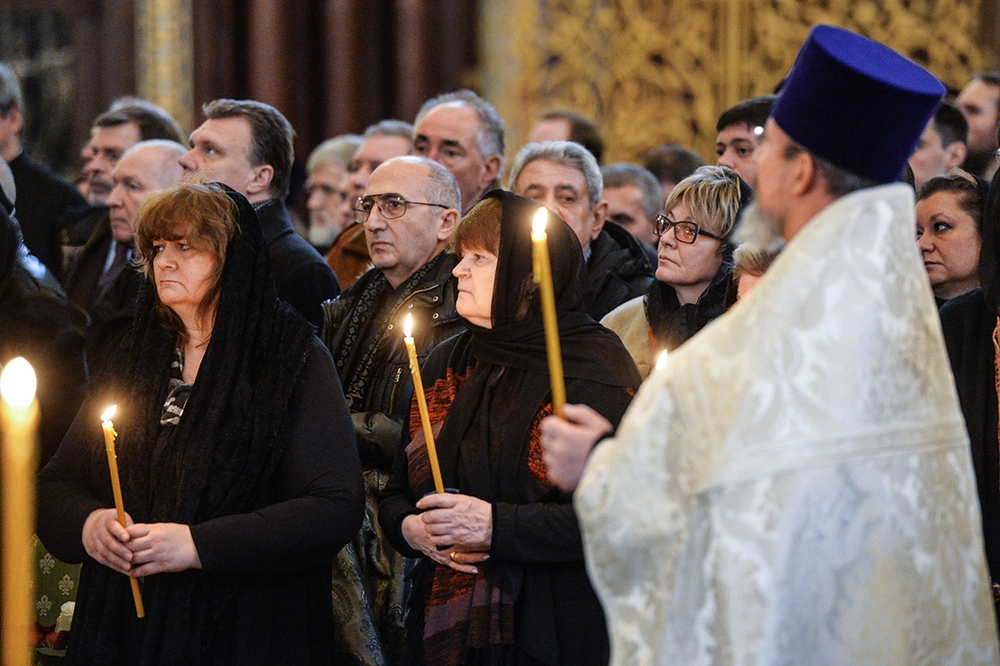
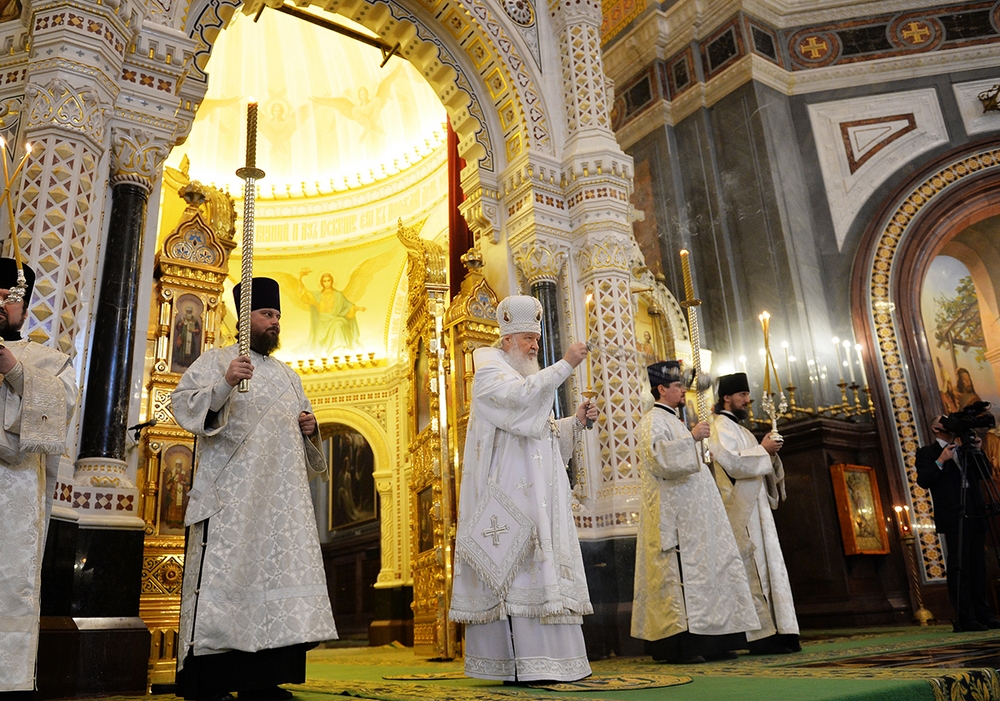
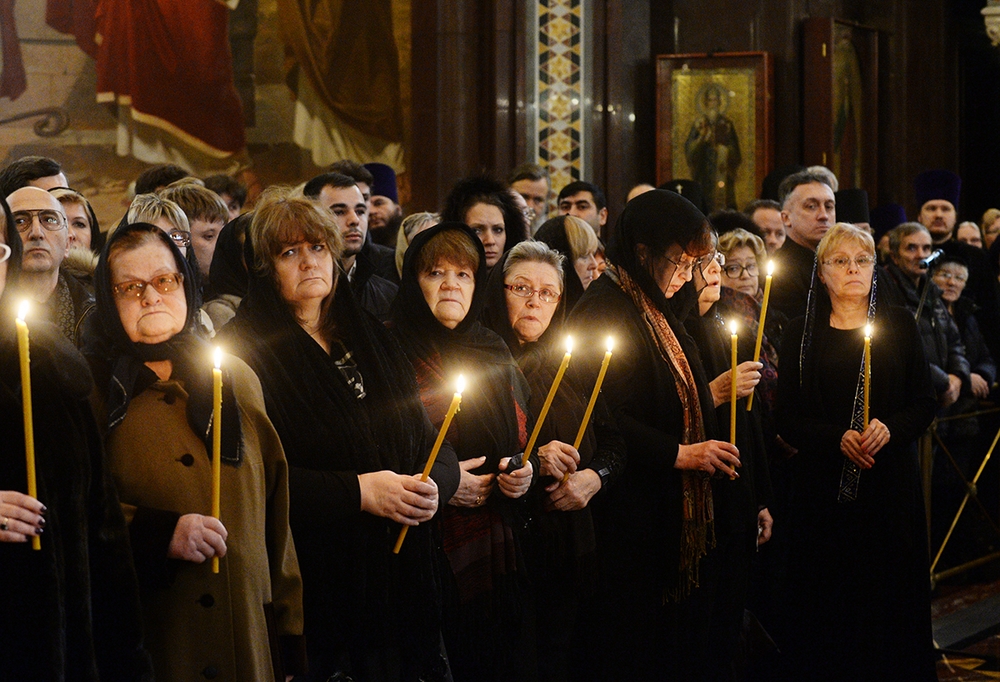

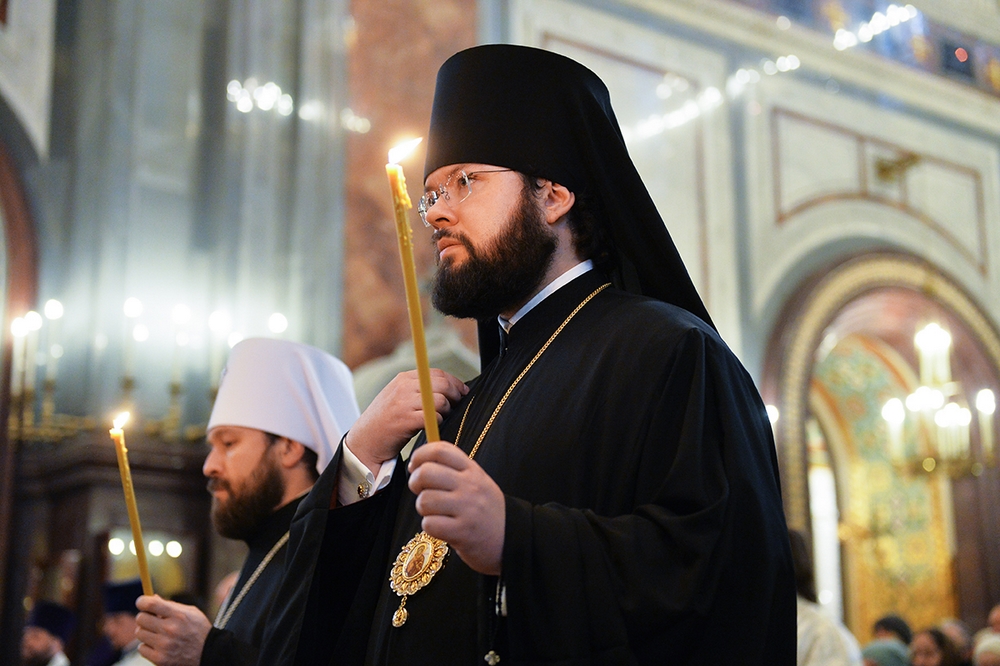
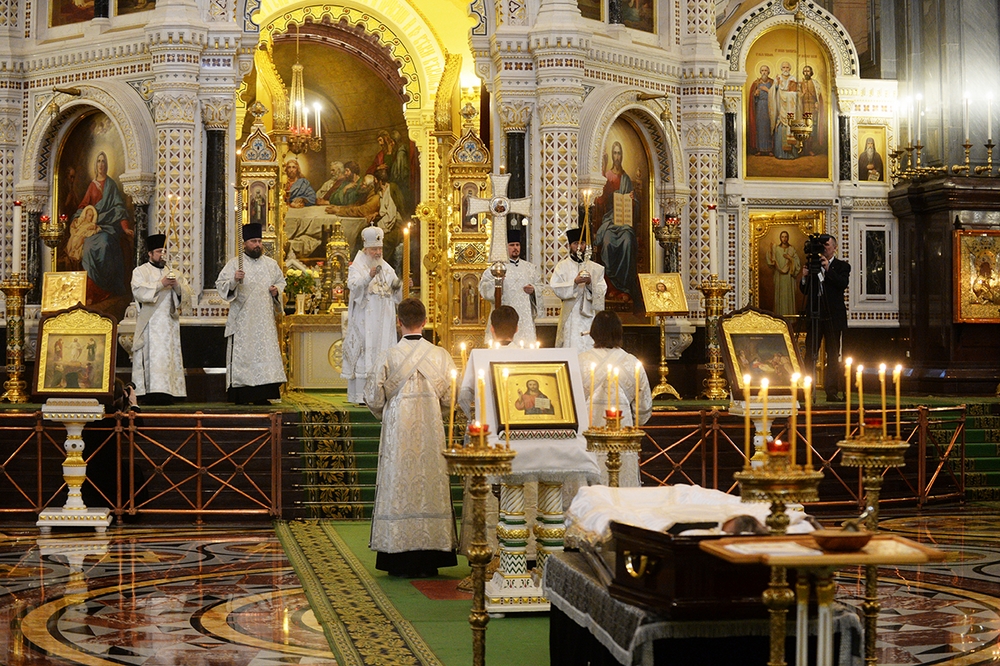

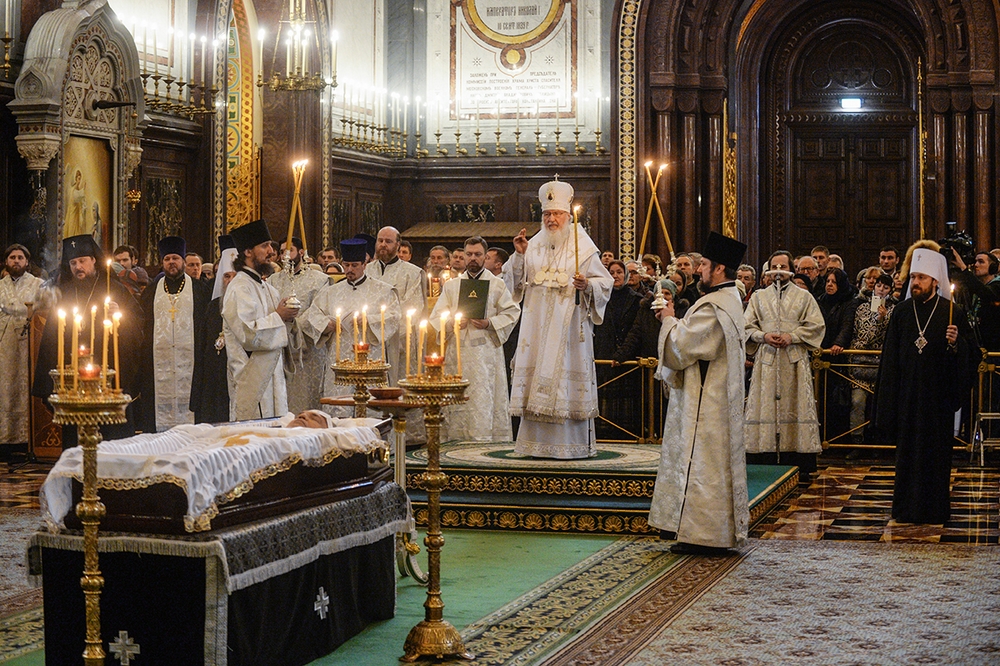

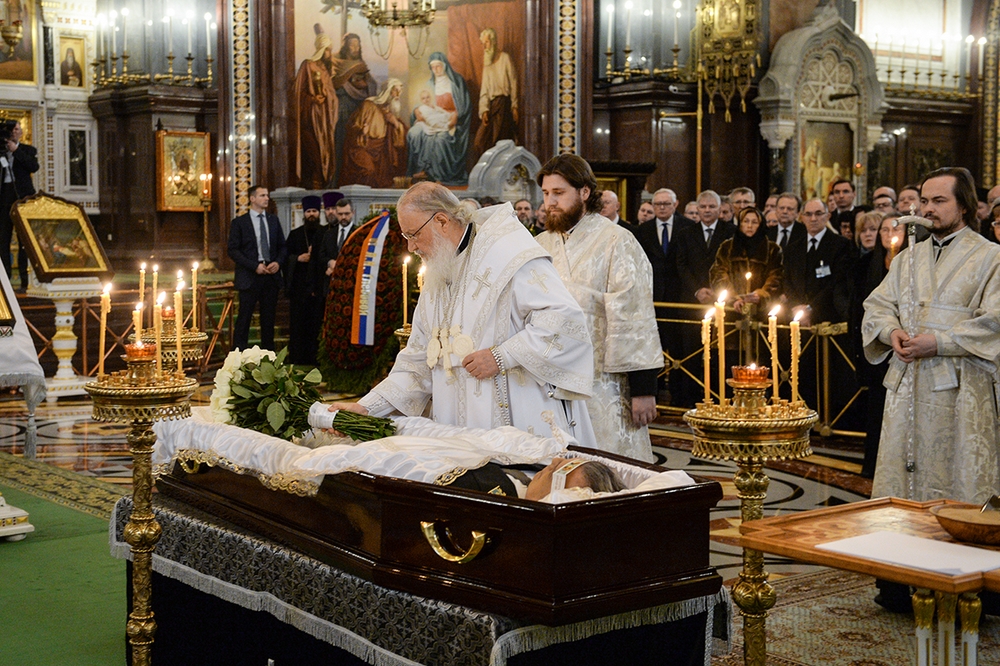

On 22 December 2016, at the Cathedral of Christ the Saviour, His Holiness Patriarch Kirill of Moscow and All Russia celebrated the funeral service for Andrei Karlov, Ambassador Extraordinary and Plenipotentiary of the Russian Federation to the Republic of Turkey, killed by a terrorist in Ankara on December 19.
The lying-in-state ceremony took place at the Ministry of Foreign Affairs in Smolenskaya Square, in Moscow. Among those in attendance was Mr. Vladimir Putin, President of the Russian Federation, who had given to Mr. Karlov posthumously the rank of the Hero of Russia. After the ceremony the coffin was brought to the Cathedral of Christ the Saviour.
Before the funeral service, His Holiness Patriarch Kirill addressed all those present, saying in particular:
“The Lord willed me to meet with him [Andrei Karlov] under very unusual circumstances. An Orthodox church was built in Pyongyang, capital of the Democratic People’s Republic of Korea, with his direct participation and in close cooperation with our Church. It is the first and so far the only Christian church constructed in this country in our time.
“To build the church much work was done, and Andrei Gennadyevich fully devoted himself to it. It was with his direct involvement that the construction was successfully completed; I ordained two Korean priests, and the parish life began there.
“When I was leaving Pyongyang, many people would say to me that this event was rather of political and protocol, than of real pastoral and spiritual importance. Of course, it all depended on what would have happened afterwards to this parish. Should it have become a place of solely protocol celebrations, it would not be a church in the full sense of the word. I told Andrei Gannadyevich about it, and he replied that as he, his wife and many staff members of the Russian Embassy in Pyongyang had profound religious beliefs, the church would remain a place of prayer under any circumstances.
“It is remarkable that one the first services celebrated in that church was a wedding of Mr. Ambassador and his spouse. It could not but make a great impression on the DPRK authorities, on the public and on all those to whom this information was available.
“Even if that would have been the only thing Andrei Gennadyevich had done, the establishment of an Orthodox parish in Pyongyang is of historic importance. Yet, he had done so much! We met with him many times afterwards, for instance, during my visits to Turkey, and I know what support he gave to the Russian Orthodox Christians living in Turkey and what efforts he made to see an Orthodox church built in Ankara. I am sure he would have succeeded and the church would have been constructed…
“The life of Andrei Gennadyevich ended tragically. He will go down in history of our homeland as the Russian ambassador who died on duty. There are not many such people. He will always be commemorated in the history of our nation as one of such heroes…
“Let us pray for the repose of his soul that the Lord may forgive him his trespasses, voluntary and involuntary, for there is not a man who did not sin. We believe that through our prayers and especially through his death as martyr, Andrei Gennadyevich will enter the Heavenly kingdom of glory and the Merciful God will pour out his grace on him.”
Among those concelebrating with His Holiness were Metropolitan Varsonofy of St. Petersburg and Ladoga, chancellor of the Moscow Patriarchate; Metropolitan Hilarion of Volokolamsk, chairman of the Moscow Patriarchate’s Department for External Church Relations; Archbishop Sergy of Solnechnogorsk, head of the Moscow Patriarchate’s Administrative Secretariat; Bishop Antony of Bogorodsk, head of the Moscow Patriarchate’s Administration for Institutions Abroad; archpriest Vladimir Divakov, Patriarchal secretary for Moscow; archpriest Mikhail Ryazantsev, sacristan of the Cathedral of Christ the Saviour; archpriest Nikolai Balashov, DECR vice-chairman; and the Moscow clergy.
Among those praying in the church were staff members of the Ministry of Foreign Affairs and Mr. Karlov’s relatives.
Andrei Karlov was buried with military honors at the Khimki cemetery.
Patriarchal Press Service
DECR Communication Service
Patriarch
Sermons
05.01.2026
24.12.2025
24.01.2021
06.11.2020